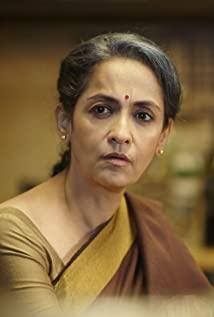Scientists have done an experiment. A group of children is placed in a room with candy, and they are told in advance that if they don't eat the candy in the room, they will get an extra 3 pieces of candy as a reward at the end of the experiment. The results of the experiment showed that there were those who could not resist eating the candy on the spot, and those who resisted eating the candy on the spot and were rewarded. Scientists tracked the growth of these children, and children who resisted eating often had better life achievements than those who ate it on the spot.
Little is known about India as a country. From news and movies alone, most people are poor and the legal system is very backward. The only thing that shocked me about the protagonist's experience is that he clearly imagined that after killing his master, he would cause bloody revenge against his family by the landlord, but he still carried out his plan calmly, and the consequences were as he expected. People were slaughtered. In order to break through the chicken coop, whether the price is worth the price has always been a key part of the so-called human nature movies that like to discuss. The film first uses the Celestial Dynasty as a comparison. In order to develop, the priority is to build roads instead of sewage pipelines, implying that the desperate priority to choose development has the atmosphere of a strong country. I also chose the owner's wife for comparison. Ping Ji, an Indian who has received a full Western education, is full of benevolence and morality, but also likes to do things in India where there is a vacuum of morality and law. He dares not take responsibility for drunk driving and hits people, and blames all bad things on India. This bad environment, and then cowardly patted his butt and left. So the protagonist finally said that the future of this world belongs to the brown and yellow people, and the white people have no hope.
Back to the question, whether the 17 people should give up. Grandma is a key figure. The attribution given to her by the protagonist is cunning and cunning. Why do you say that she is a poor person of low caste, but she is the best one who lives in her caste position. The method is moral kidnapping and falsehood. collectivism. 17 people, under her management, all have to work, and their income is under her control, but she can get rid of manual labor and sit at the center of the family every day to monitor everyone, her biological son, and work. If you get sick with tuberculosis, you won't be sent to the hospital for treatment, and you will die alive. If you talk about collectivism, shouldn't everyone be for me, and I for everyone? How about taking part of the money collected by the family to see a doctor for my son? No, if you die, you will die. If you die, the protagonist of the next generation will continue to make money for the family as a driver, so she urged every male member of marriageable members to get married and have children quickly. After giving birth, this person is basically useless. No longer worth investing in. Everyone in the family except her is blinded by the family's affection, thinking that the big family will take care of everyone, at least not panic when they lose their support? Suppose that the protagonist's top bag bumping into people is revealed, and the police go to the house to arrest people, will grandma use money to bribe the police to redeem people? Maybe, but according to the cold-blooded characters in the movie, most likely not. The big deal was that a group of people approached the landlord to reason with her, and the landlord earned her a hush-money fee.
If the murder of the protagonist is revealed, and the landlord's family goes to execute the company, is this the original intention of the protagonist or the landlord's own opinion? The act of killing Lian has nothing to do with the protagonist, and he should not be responsible for it. Why does he feel fear and can't bear it? This kind of fear and intolerance is just a subconscious reaction caused by the kidnapping of childhood morals. Others are using the old scene method to prevent his personal life choices? Maybe it's not a problem, but it's the addition of this kind of psychological reaction that makes simple arithmetic a moral problem.
If a person can clearly recall what happened to him in the past, and how those so-called relatives reacted, he will be clear about their interests and choices. You think they are parents, then when you are seriously ill, they will treat you. What is your attitude? Will you scold you for how you got sick of spending so much money? Simple treatment, or all kinds of excuses for not being able to get money for not giving you treatment, you still feel that they are compelled to do so. For another example, when you take refuge in a relative's company, when the company is about to die, when he does nothing but himself and doesn't give you any consideration for the future, do you still think they are reliable relatives?
The protagonist only starts from himself to measure the consequences of killing people and stealing money, and things suddenly become simple and easy. The landlord's youngest son is a soft egg with a white inside and a brown outside. , the protagonist tests his reaction by secretly picking up customers and selling gasoline during the time alone with him. He is completely ignorant. With bribes, nothing can be fixed.
The last paragraph of the protagonist working in a luxury car rental company is a bit rushed. A good servant is not necessarily a good boss. However, he no longer engages in moral kidnapping. The labor contract is the labor contract, lest the company's actions become personal grudges and bloody revenge.
View more about The White Tiger reviews











